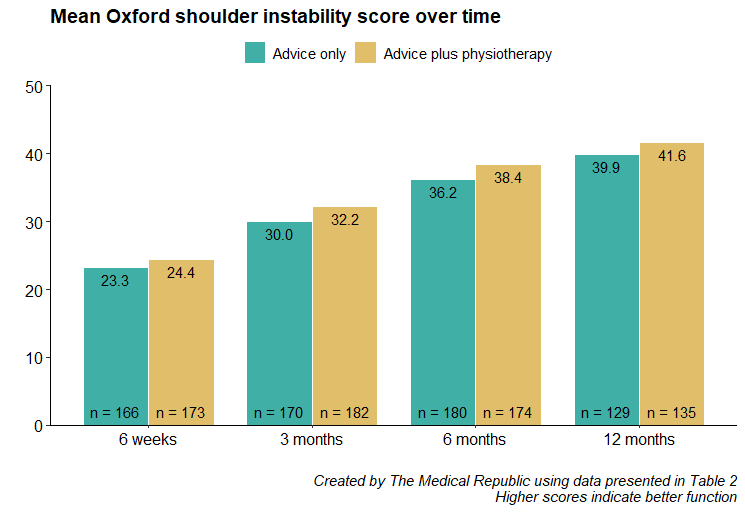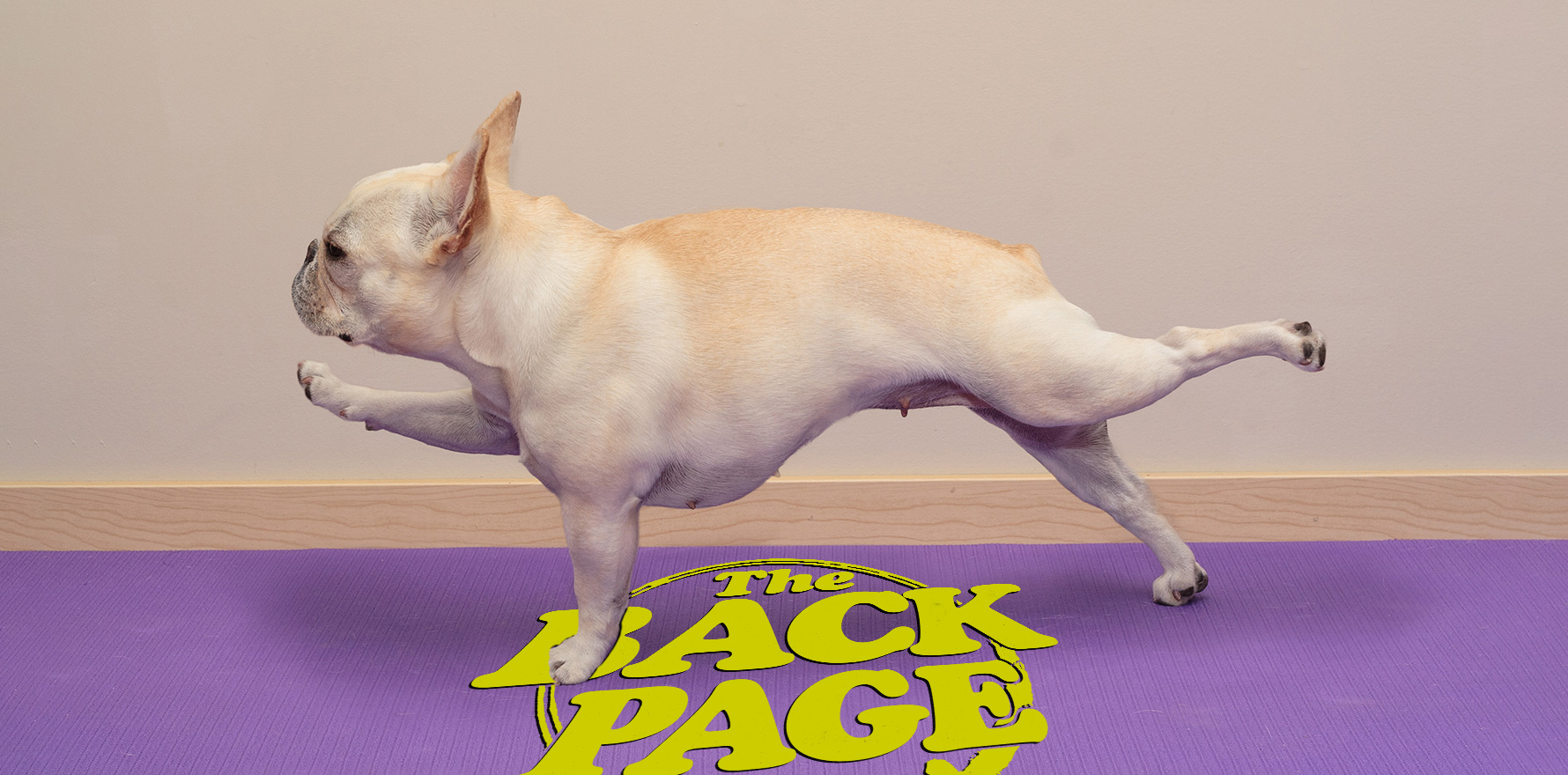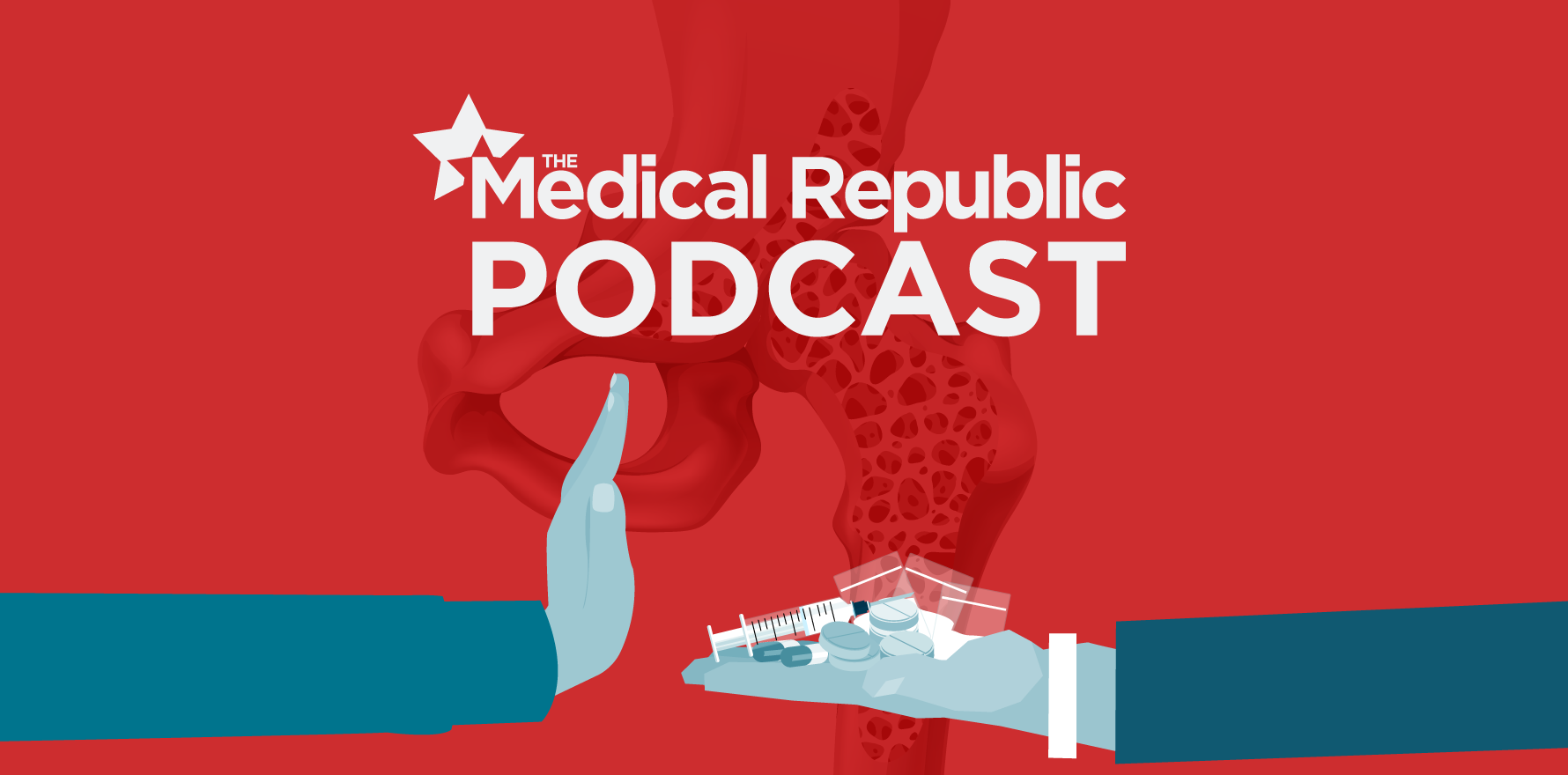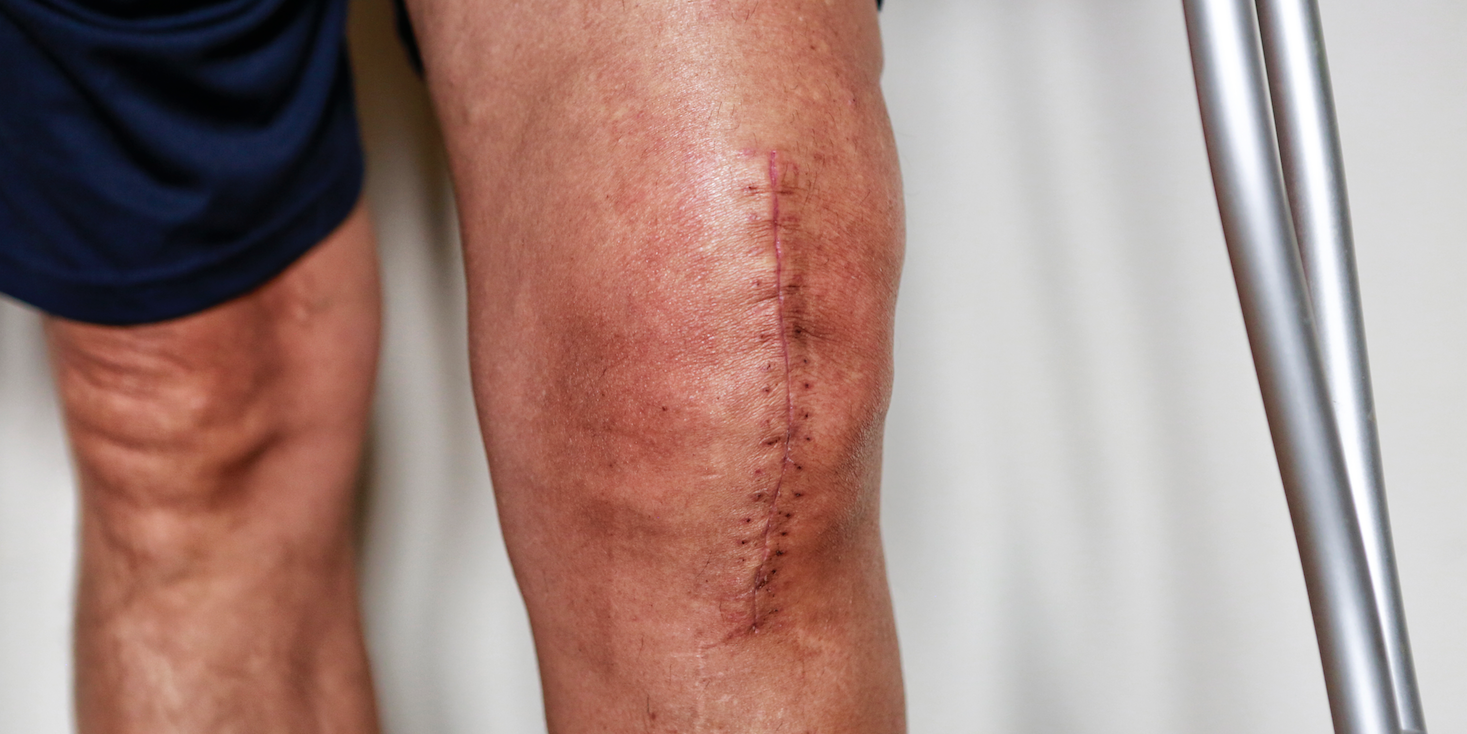Education, support and the option to self-refer is equally effective, new research suggests.
Physiotherapy isn’t always necessary for people who dislocate their shoulder, a new study suggests.
Non-operative rehabilitation is the most common approach for treating a dislocated shoulder. Rehabilitation can range from being given a single printout through to months of personalised physiotherapy, but to date, little is known about the effectiveness of the different approaches.
A new randomised trial, published in the BMJ, questioned the clinical value of physiotherapy referrals, and suggested giving patients the option to self-refer might be a better option.
“[These findings] will enable clinicians and patients to have evidenced informed discussions about the best approach to non-operative rehabilitation [for shoulder dislocation],” the researchers concluded.
The UK study involved over 400 patients with first-time anterior shoulder dislocations receiving not-operative management. Most patients were older (54% ≥40 years) and sustained a non-sports-related injury (64%).
Following assessment by a physiotherapist all patients received education and advice on progressive post-dislocation exercises and exercise planning. Patients were then randomised to either self-care or a series of 30-minute physiotherapy sessions over the next two months.
The study found that after six months, there was no difference in shoulder function between patients allocated to the advice only group compared to the group who also received physiotherapy.

In addition, there was also no difference between groups with respect to the two secondary outcome measures – arm, shoulder and hand disability and health-related quality of life. Complications – including rotator cuff tears, re-dislocations and fractures – occurred at similar rates between the two groups.
Related
“The additional physiotherapy programme was not a worthwhile benefit,” the researchers wrote.
“We now know an additional program of individually tailored physiotherapy is not superior to advice, supporting materials and an option to self-refer to physiotherapy.”
An accompanying editorial highlighted key shortcomings of the trial, including the fact that the advice and additional physiotherapy sessions did not focus enough attention to the subscapularis, overhead exercises or addressing the fear of reinjury, which may have limited the effectiveness of the selected treatments.






